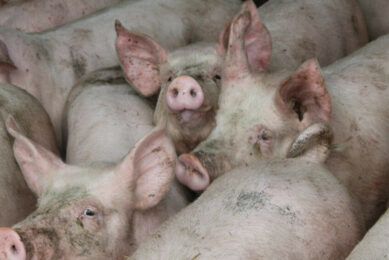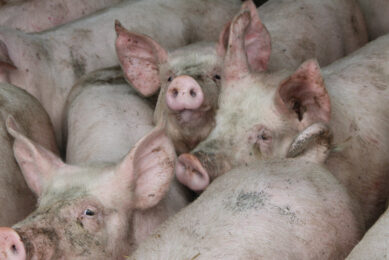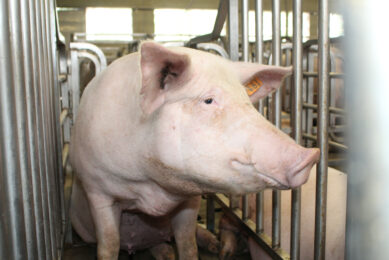UK: Increasing returns for pig farmers

Improving growth rate in the finishing herd by just 70g per day could help hard-pressed pig farmers increase returns by £2.86 (€3.85) per pig, amounting to over £30,000 (€40,424) for the annual output from a 500-sow herd, says Ed Sutcliffe, technical director of pig genetics company, ACMC, in a press release last week.
Britain still lags behind most of the continental industries in this area and therefore has plenty of scope to improve, he adds. “According to a BPEX survey, only one other country — Italy — reports its pigs as growing slower and this is largely influenced by production for the specialist Parma ham trade”.
Increasing the average daily liveweight gain of British pigs from 655 g to 727g — which represents the difference between the ‘average’ and ‘top 10%’ of herds quoted in the BPEX Pig Yearbook 2007 — over the 30 kg-to-slaughter period could increase finishing weight by 7.7 kg per pig.
This extra saleable meat would improve returns for pig farmers by £6.55 (€8.82) per pig, increasing the margin by £2.86 (€3.85) after allowing for the cost of additional feed.
Growing pigs faster
For farmers already taking pigs near to the limit of their contract weight, growing pigs faster would mean that they would reach their finishing weight 10 days earlier, reducing the cost of feed for maintenance.
This would also have the advantage of increasing throughput, taking the pressure off housing space and allowing more time for cleaning and disinfection routines which are known to improve health and performance.
The question then arises as to why pigs grow slower in view of the advanced pig genetics industry in Britain?
“It’s partly down to our more extensive systems and also due to the ageing housing and lighter UK slaughter weights,” says Mr Sutcliffe. But he also believes many producers could improve growth rates simply by carefully monitoring throughput of pigs at each stage of the finishing system.
“Bottlenecks can easily occur at different production stages, when pigs get held up and are not moved on to the next housing phase at the right time. Ironing these out, by focused management, can go a long way to improving growth right the way through the system,” he said.
Related website:
• ACMC











